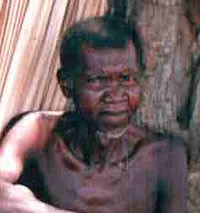Masikoro in Madagascar

Photo Source:
Anonymous
|
Send Joshua Project a map of this people group.
|
| People Name: | Masikoro |
| Country: | Madagascar |
| 10/40 Window: | No |
| Population: | 821,000 |
| World Population: | 821,000 |
| Primary Language: | Malagasy, Masikoro |
| Primary Religion: | Ethnic Religions |
| Christian Adherents: | 40.00 % |
| Evangelicals: | 0.48 % |
| Scripture: | Portions |
| Ministry Resources: | No |
| Jesus Film: | Yes |
| Audio Recordings: | Yes |
| People Cluster: | Malagasy |
| Affinity Bloc: | Malay Peoples |
| Progress Level: |
|
Introduction / History
The name Masikoro was first used to indicate all the different clans subdued by a prominent dynasty, the Andrevola, during the eighteenth and nineteenth centuries, just south of the Onilahy river to the Fiherenana river. The name later became restricted to those living between the Onilahy and Mangoky rivers.
Some use the name Masikoro to distinguish the people of the interior from the Vezo on the coast, but the Masikoro themselves, when prompted, strongly distance themselves from the Vezo in terms of custom, language and behavior. Closer to the Masikoro than the Vezo are the Tañalaña (south) and the Bara (towards the north and east). In literature the Masikoro are often counted among the southern Sakalava with whom many similarities can be drawn.
Masikoro land is a region of difficult access, often experiencing drought. The people are agro-pastoral. A diversity of agricultural activities are practiced (rice, beans, cotton, maize, manioc) and cattle raising is very important (more than two heads of cattle per inhabitant). Recently rampant cattle-rustling is causing many Masikoro to reduce their cattle herds. They are hard-working and these days have very little leisure time.
The Masikoro are a proud people, characteristically rural. Ancestral traditions are held high among them as is correct language use for specific situations, which automatically grades the speaker as one who shows respect or who does not. It is a dishonor for them to be dirty and they can be recognized by the way they dress. The influence of the big towns is resented for its corruption and schooling is not consistently a priority to them. They don't like to see their children go far away. Their strongest bond is with their tradition and although they easily show interest in the Christian faith, even professing it, only a few Masikoro are truly committed to the faith.